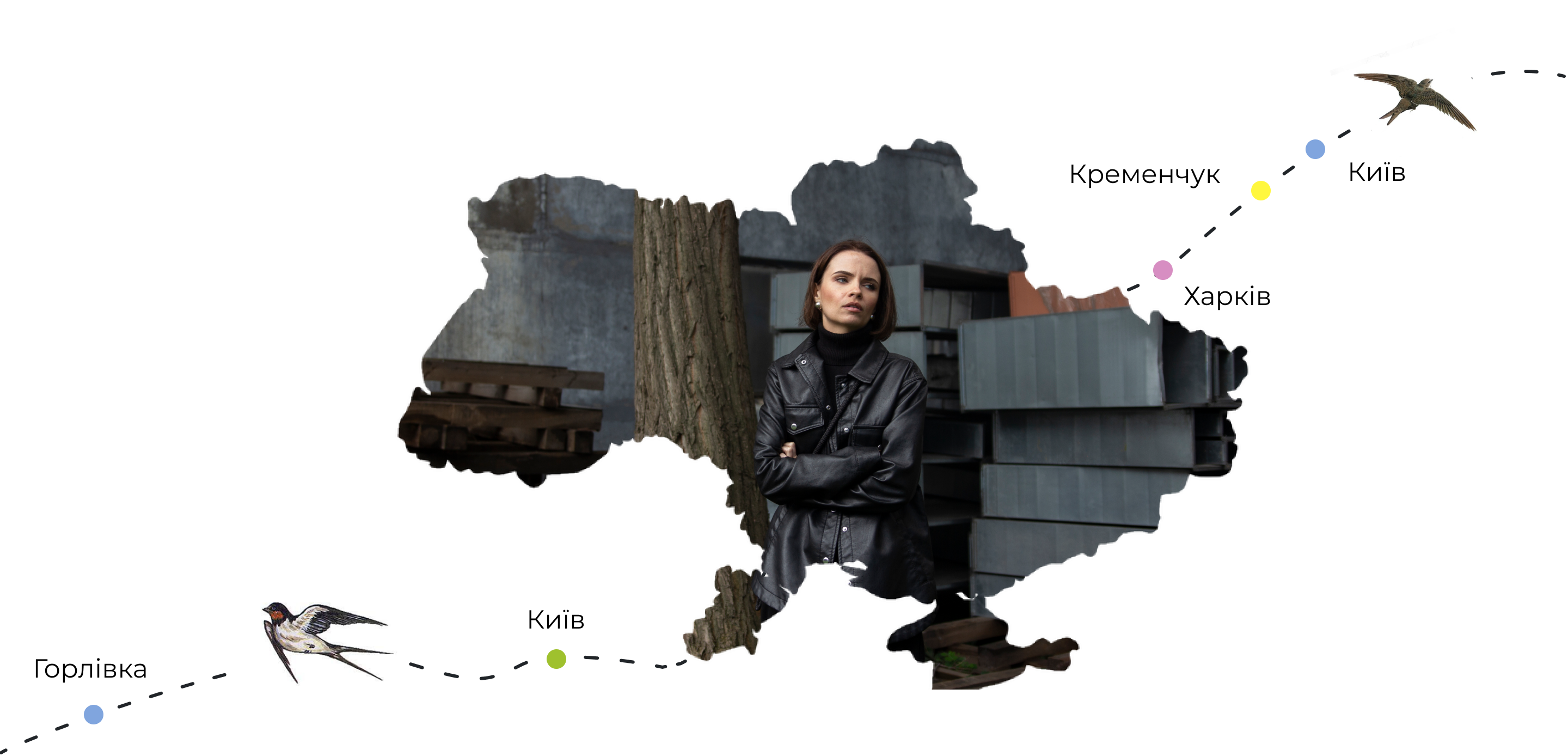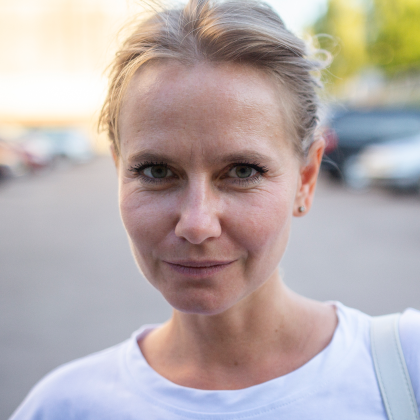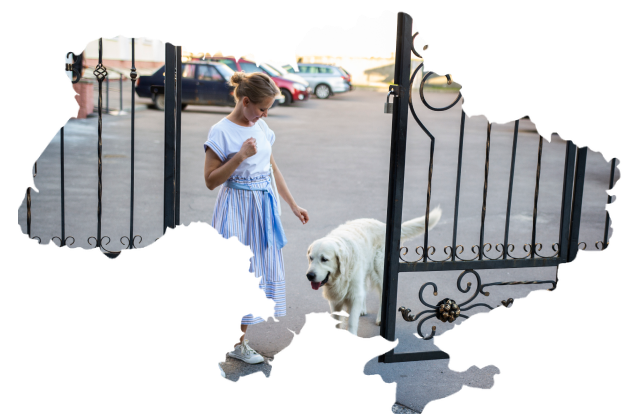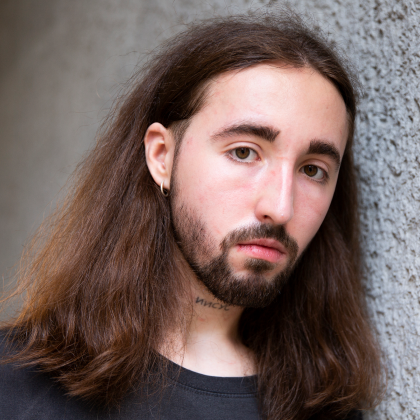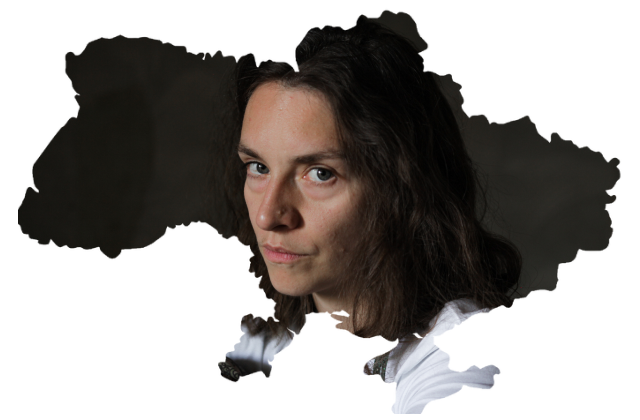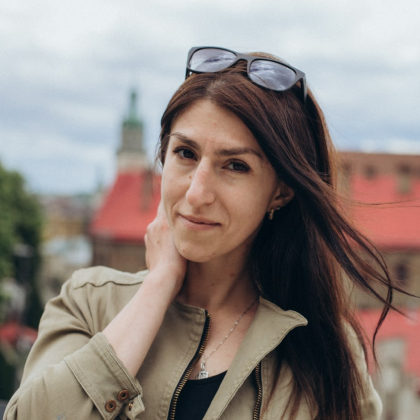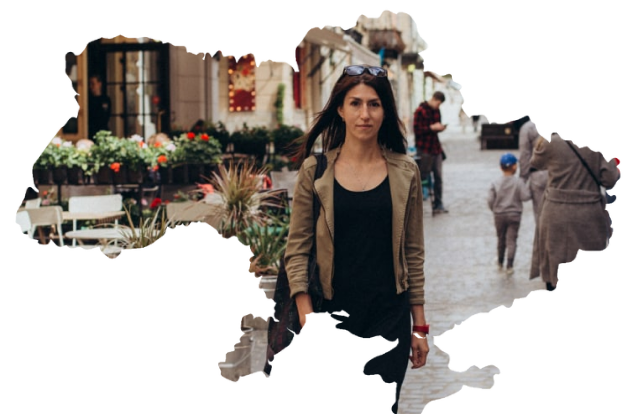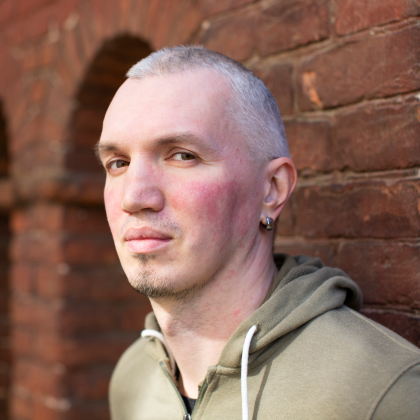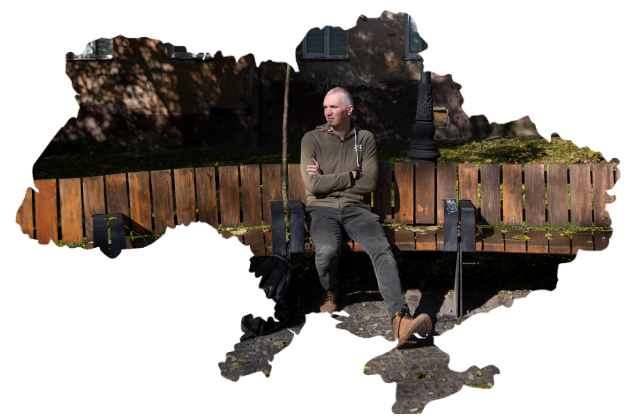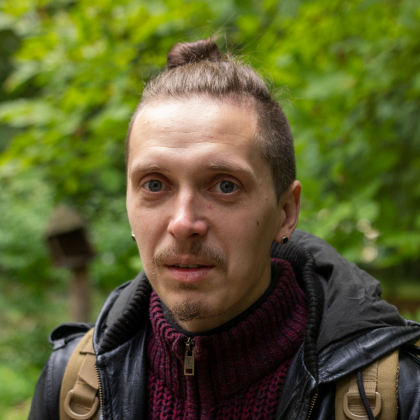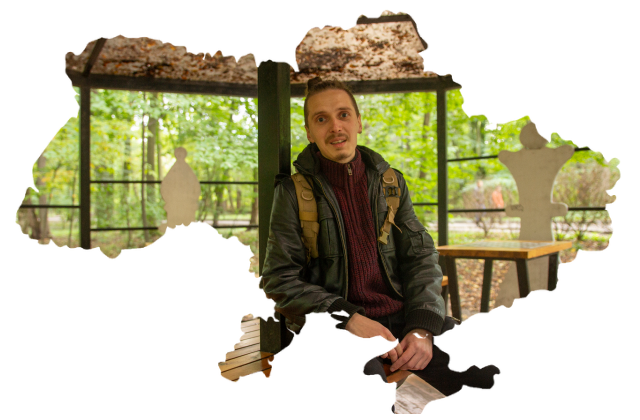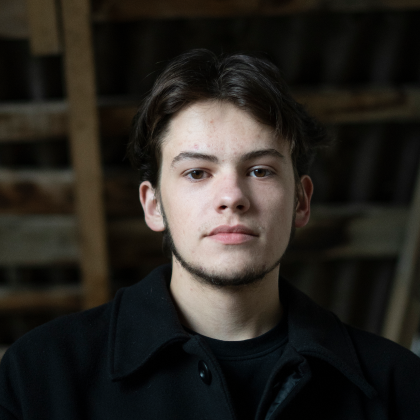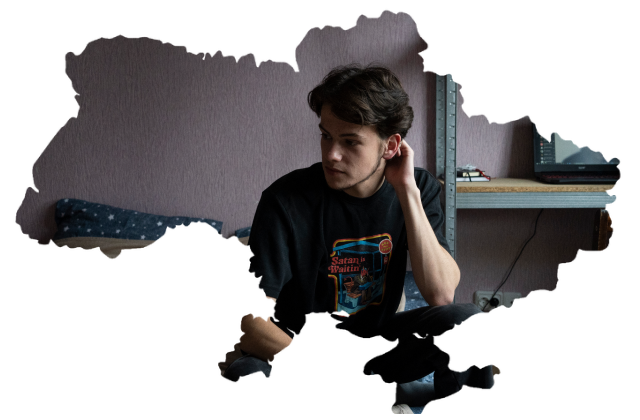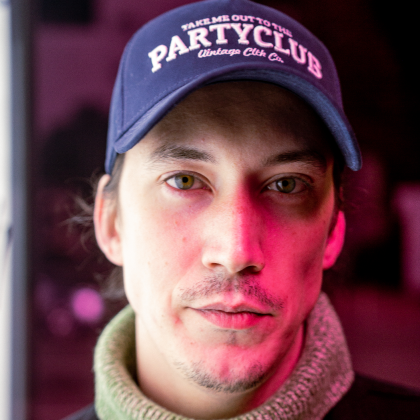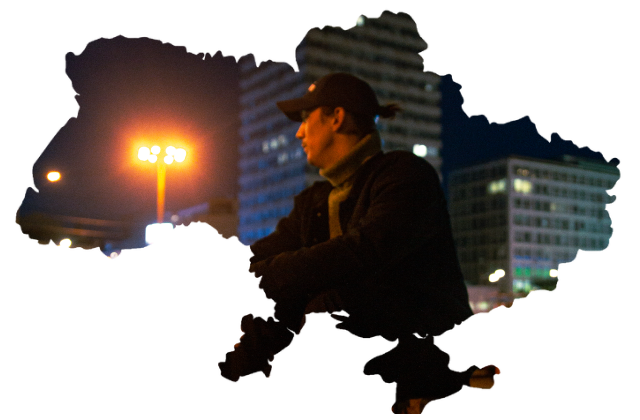Staska Padalka
Copywriter
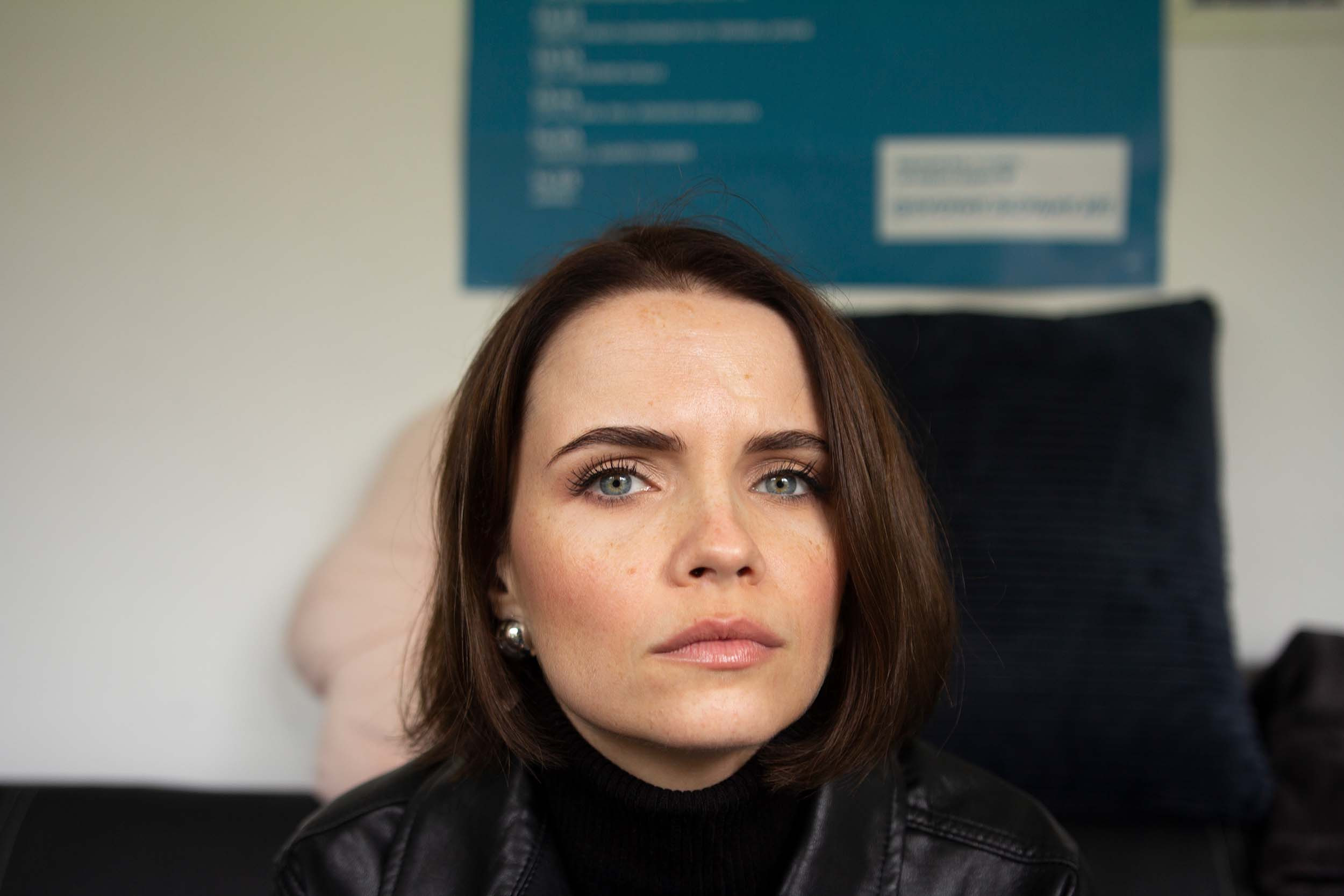
Horlivka — Kyiv — Kharkiv — Kremenchuk — Kyiv
I come from Horlivka, Donbas. In 2010, after graduating from university, I moved to Kyiv. In 2012, I moved to Kharkiv. Three years later I helped my mother to move from Horlivka, and now I don't have any connections or relatives there. So far, there is no way to return home because of the de facto occupation of the region by Russia.
Kharkiv and Horlivka are the cities that shaped me as a professional and as a person. So did Kyiv, of course, but to a lesser extent. However, in 2022, after living in Kharkiv for 10 years, I had to make a decision to move again, this time because of the full-scale invasion of Ukraine by Russia.
On February 24, I woke up late to a bunch of missed calls from friends and family. I woke up with a bunch of missed calls from friends, and relatives. The first thing I did that day was going to the pharmacy to get medicine for my mom. In the evening, my then, now ex, boyfriend came over with his cat. He started panicking violently and wanted to leave the city immediately. We stocked up on food, taped up the windows, and began to wait for something.
To sum up, February 24 was a very weird and distressing day. But for me, it was not yet associated with the beginning of the war. The realization came with the explosions the following week. But I am trained and hardened by Horlivka. I can tell the sound of a projectile arrival from the sound of its departure.
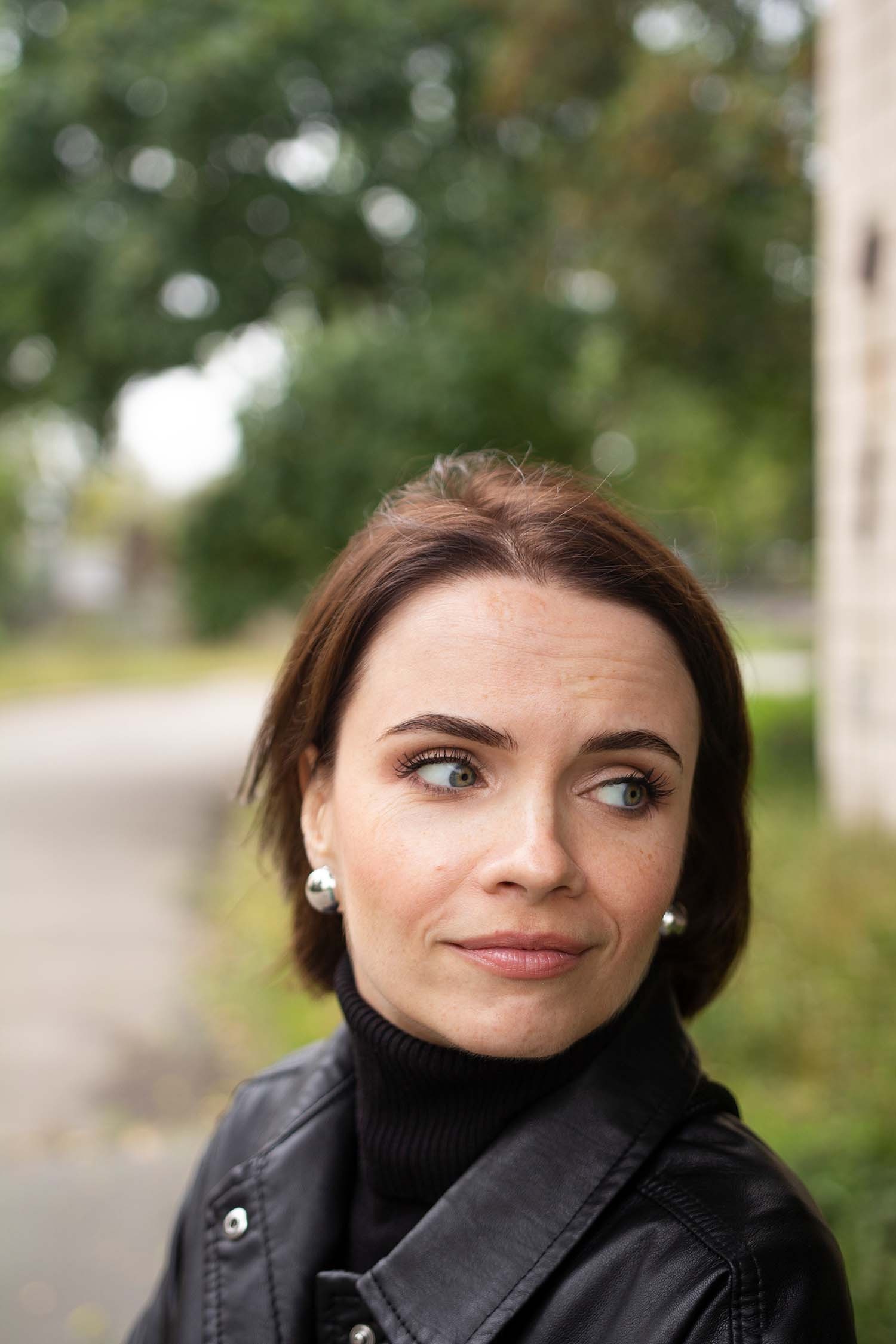
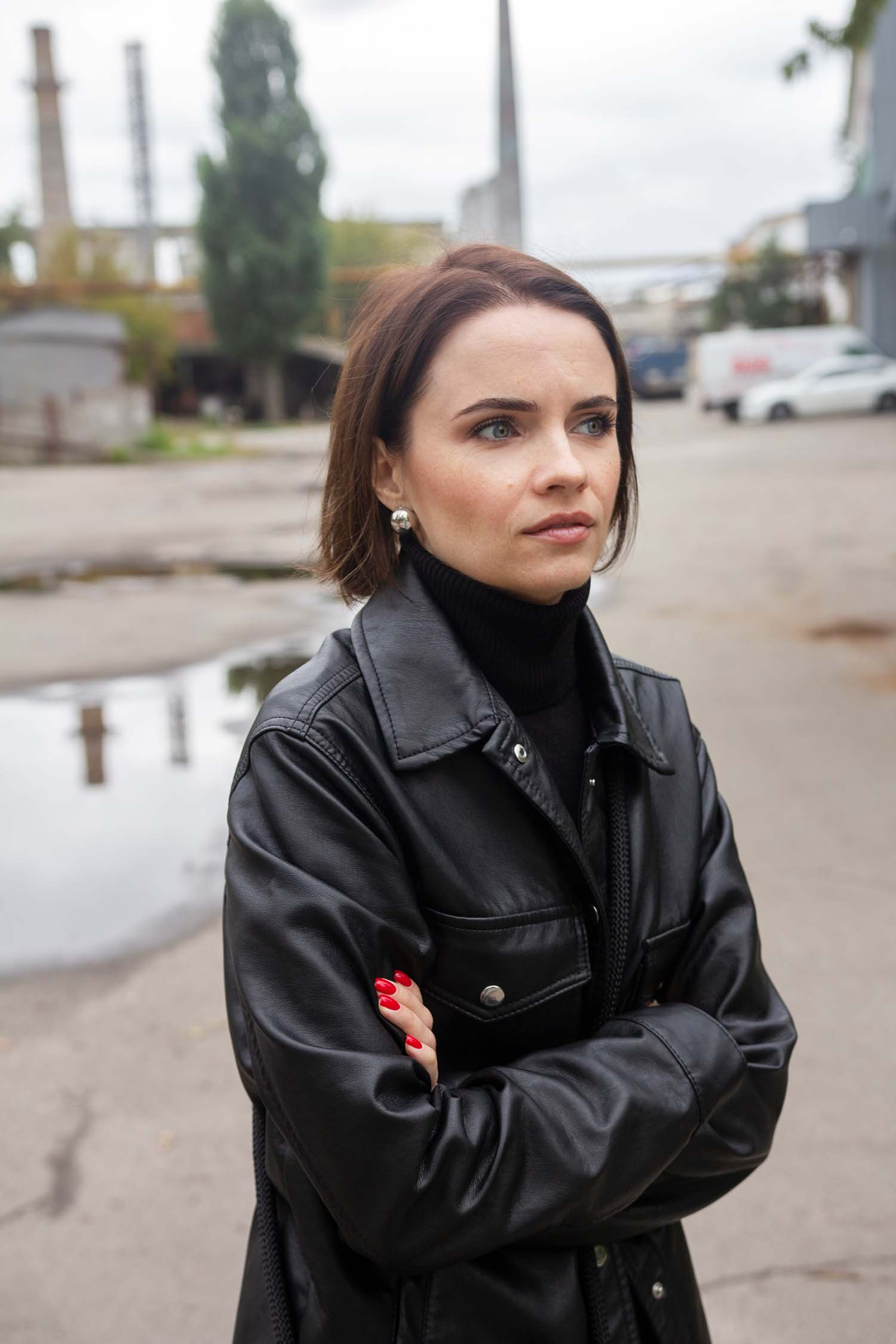
Our body, on the other hand, has three reactions to stressful situations: they are flight, fight or freeze. At first, I was frozen, catatonic. I reacted to what was happening with a certain delay. While I was in Kharkiv, it seemed like everything had stopped for me. And indeed that was what allowed me to react soberly to the events.
I barely ate, and I did not sleep well, but I thought clearly. It was later that I started to feel overwhelmed. But it was also horrifying when I heard the explosions. I remember how I would automatically cover my head with my hands during cannonades, even though I knew it wouldn't help. There was that constant level of anxiety, which you gradually got used to.
On March 1, the Tank School close to my place was bombed, and my apartment was illuminated by the glow of the explosions. On March 2, I decided to leave. Together with my cats, my then-boyfriend, and my mother, we headed off to Kremenchuk.
Why Kremenchuk? When the war started, my ex-boyfriend and I texted each other at the same moment, although we hadn't contacted each other for 3 years. It was then when he offered to come to his place. That's how lucky I am with my exes: one took me from Kharkiv to Kremenchuk, and the other sheltered me there.
The road from Kharkiv to our destination was rough. We drove 11 hours instead of four, from checkpoint to checkpoint. There was massive shelling at the time, and a lot of people were leaving the city, so the traffic was heavy.
I lived in Kremenchuk since March. We stayed in a nice neighbourhood, everything was close by, and we were surrounded by good people. It was very important for me to arrange my routine: the one that had been taken away from me, the one that I'd left in Kharkiv. I started to look for ways to adapt to the chaos. By chaos I mean the absence of work and the absence of personal life, only my ex-boyfriends around. I mean the absence of understanding of what to do next.
I was lucky that my trainer from Kharkiv moved to Kremenchuk. So we began to train like we used to. With time, I managed to build a set of daily activities, which helped me get to a more or less stable state.
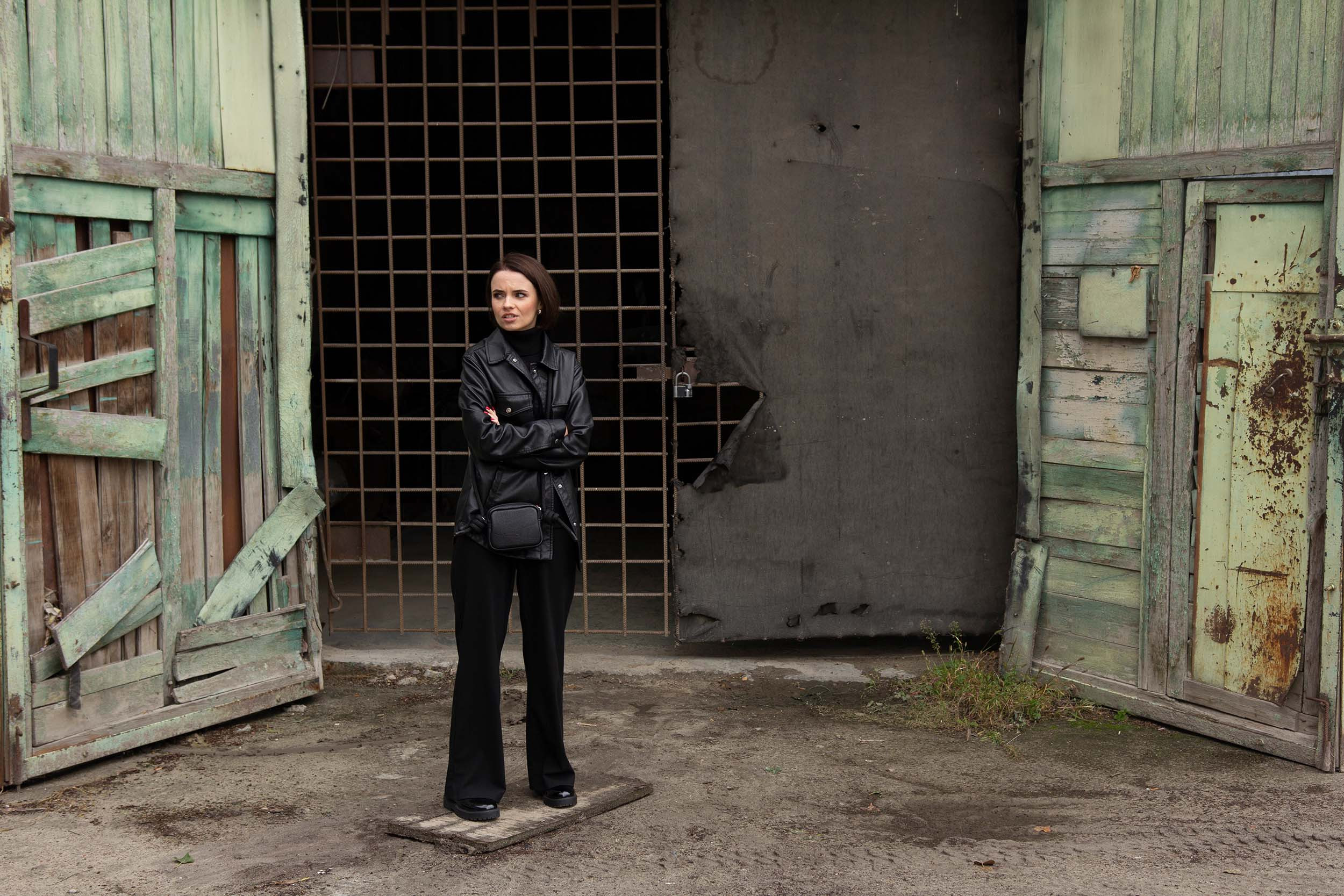
In mid-June, I had to leave my apartment in Kremenchuk. There was no way I could return to Kharkiv, so I chose Kyiv. Personally, I don't really like it here for Kyiv is hard to live in, and life here feels more like surviving. Just like when I was a student.
About 99% of my everyday life in Kyiv is work. Housing is very expensive here — twice as expensive as in Kharkiv. So you have to work hard. Before the full-scale war, I quit my job at Arriba, a creative agency in Kharkiv, and promised myself that I would never work for an agency again. But the war has changed everything. The Fedoriv agency has beeing inviting me to join them for two years in a row, and eventually I accepted the offer (but as for now, we have already stopped our cooperation). Now I'm adjusting my routine again.
I stay at home most of the time, I don't see a lot of other people, and I rarely go downtown. My long-time friends understand everything. I haven't adapted yet and still don't realize that I live in Kyiv because I don't see the city very often. I just know that I'm in a different place now.
Of course, the 10 years I had lived in Kharkiv left an imprint on me and my memories. The other day, I drove through Kyiv with a friend of mine, and I noticed a bit of Kharkiv in its buildings. At times you see here something that makes you want to say: "Look, this is like Nauky Avenue, and this looks like Botsad". And there are some reminders, like flashbacks. Things like, "Do you remember the Three Milks dessert in Farsch...?" I'd love to visit some of the places in Kharkiv that I miss here. For some reason, Some like it hot and Tangerine. I also regret never having gone to Molodost.
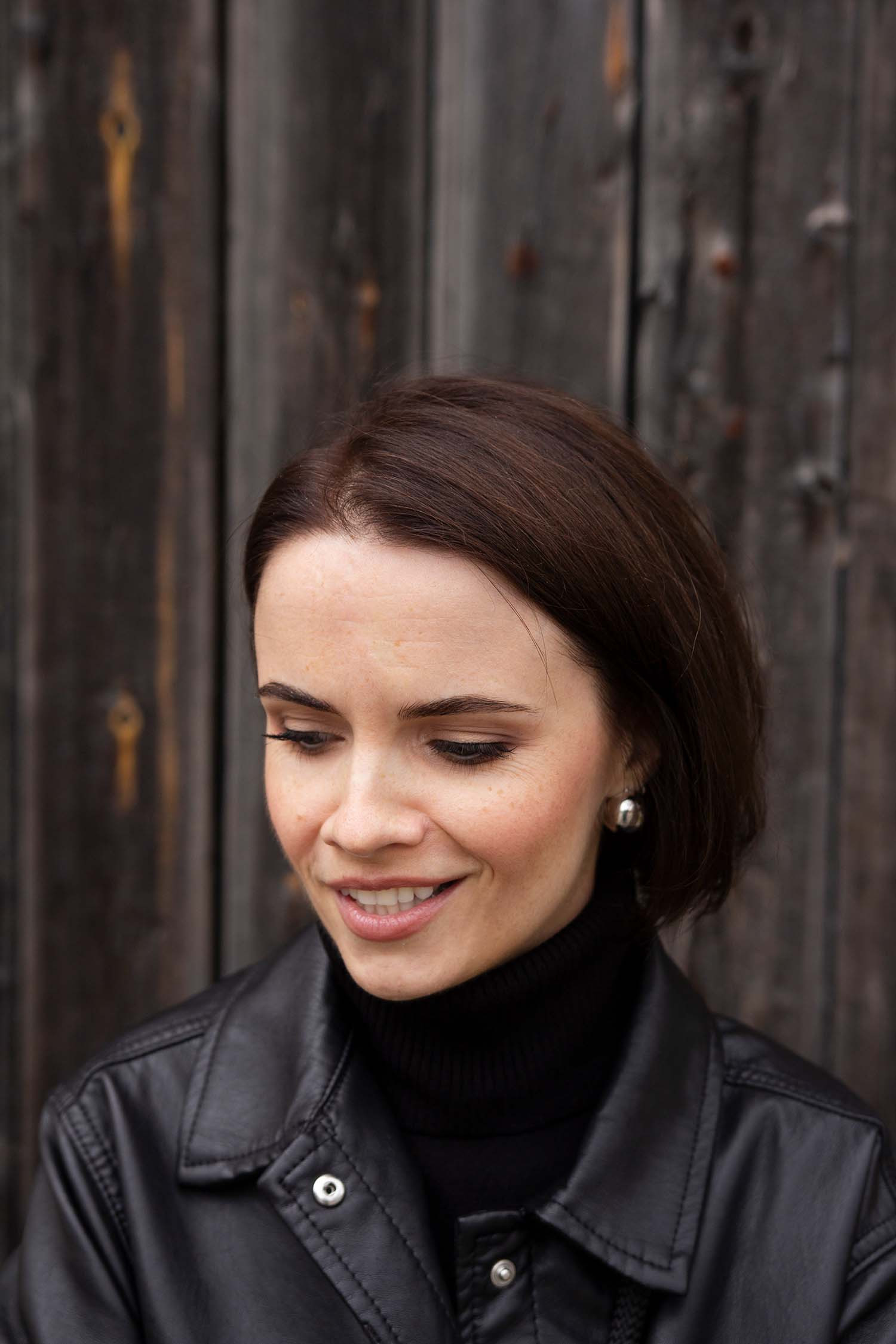
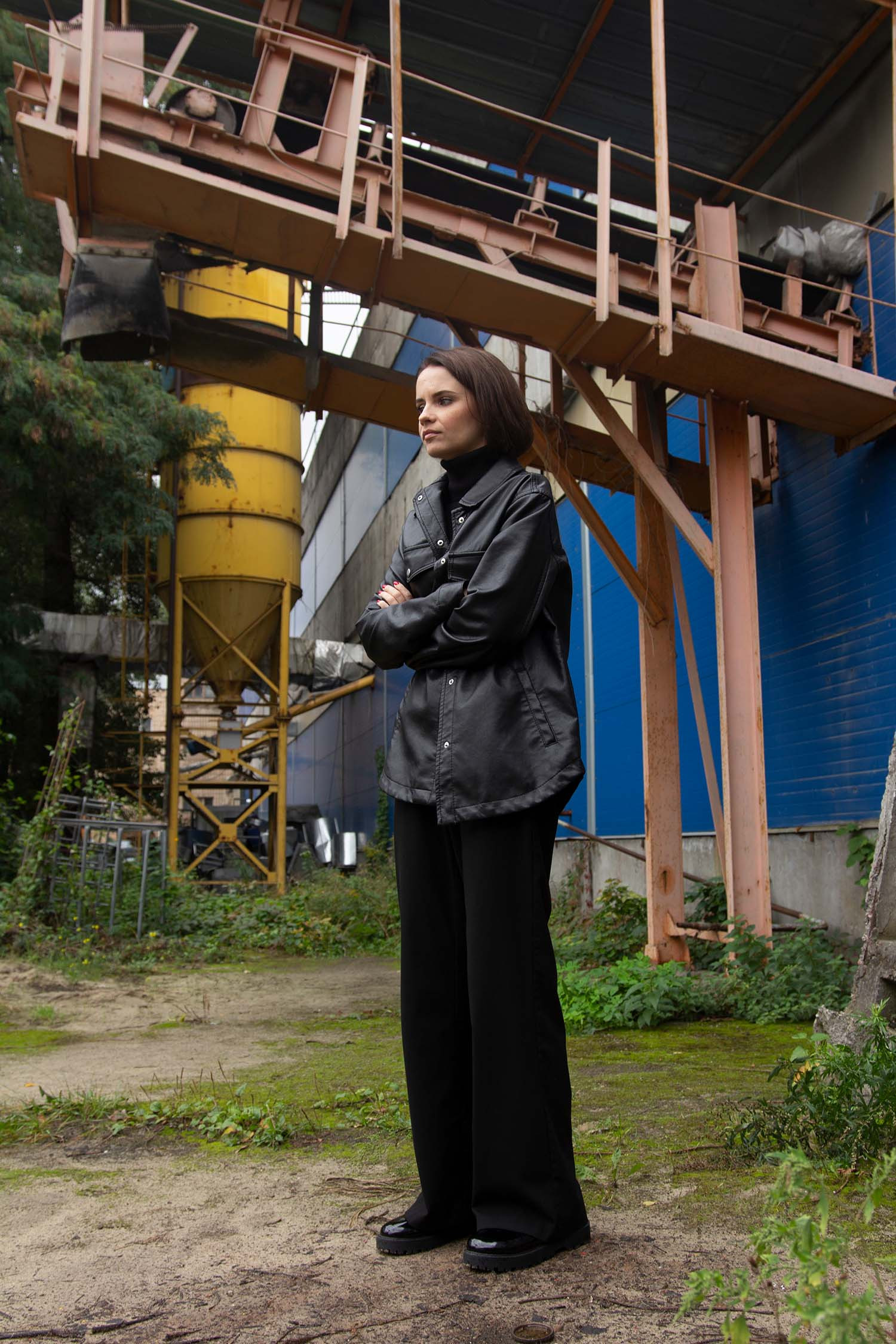
What does my city mean to me? It is people and feelings. When I got to Kharkiv in June to get my stuff, everything changed there. People I loved were not there, and nor were there the pre-war feelings. When I looked at the city I got two strong associations. The first one was "The Langoliers" movie. To me, Kharkiv seemed like a smellless place, where everything looked like a fake backdrop. And the second one was about a Dementor's kiss: it felt as if all the joy had been sucked out of Kharkiv. The city no longer felt like mine, not the way I remembered it.
I was sorry to leave Kharkiv because I viewed it as my home. But it was very difficult to stay either, especially psychologically. Nearly all of my friends, except for two or three, have left the city, and no one is going to come back yet.
I still can't believe what is happening in Kharkiv. Even when I got there to get my stuff and saw all that destruction, it felt like watching a movie. I have a similar feeling when I think of Horlivka. It is as if my internal matrix superimposes on both Kharkiv and Horlivka the image of what they were like before the war. That is, I continue to visualize them as normal, undamaged, and war-free. Still, my Kharkiv has gone somewhere. And everything that is going on there now happens to another Kharkiv, not to mine.
Kharkiv means a lot to me. Of course when everything is over, I would love to come for a few days. I'm even ready to help at all sorts of volunteer cleanups. But living there again will be difficult, and it is hardly possible anytime soon.
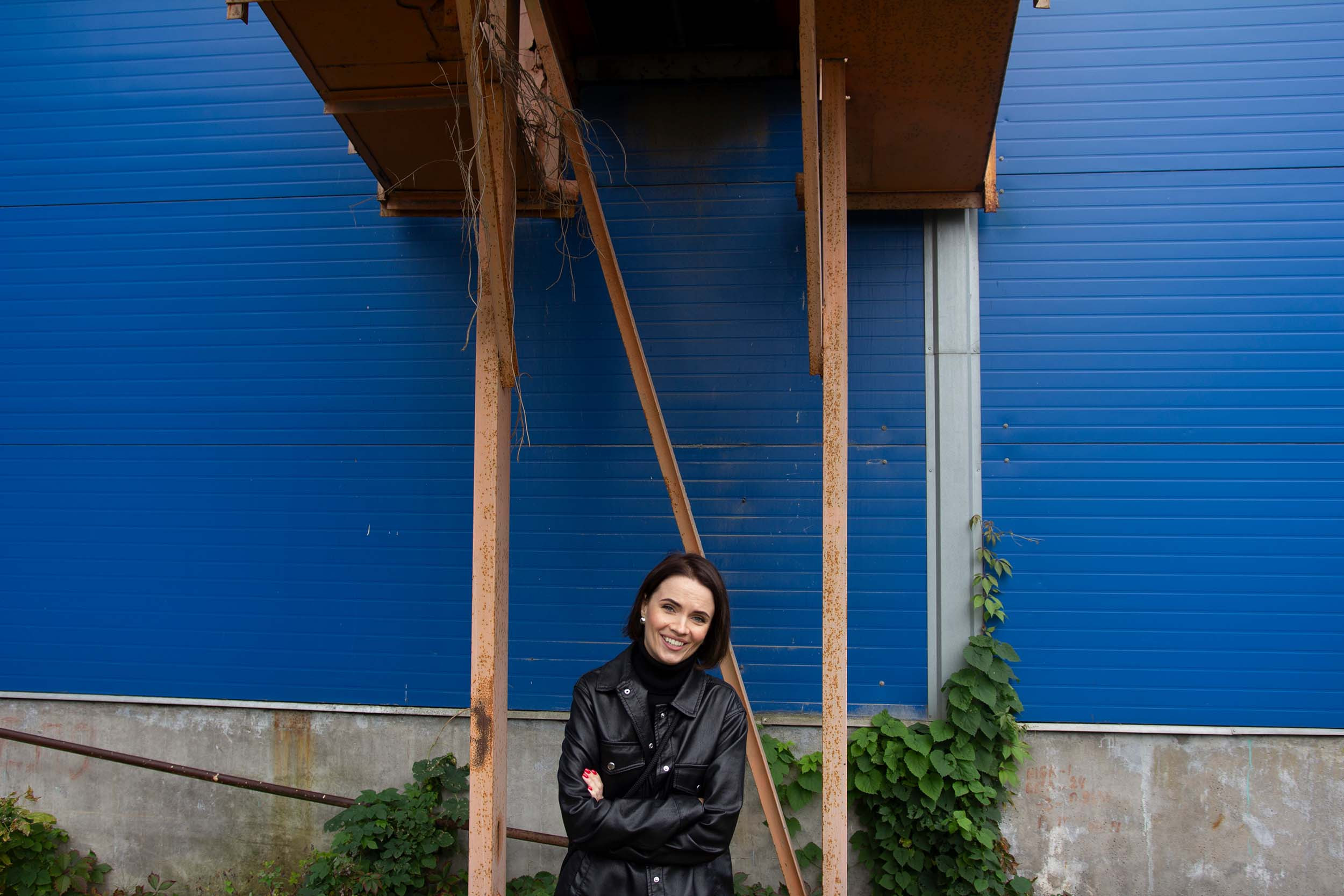
Recorded by Valeriia Merenkova
Translated by Volha Mikhnovich
Photographed by Vladislav Yevdokymov
